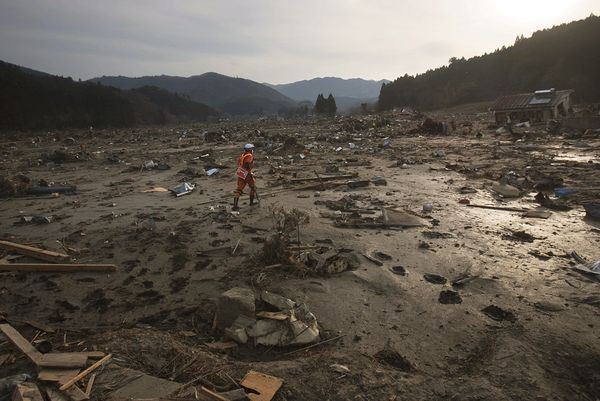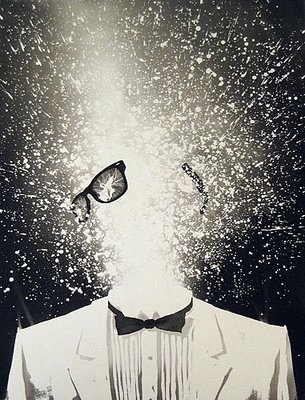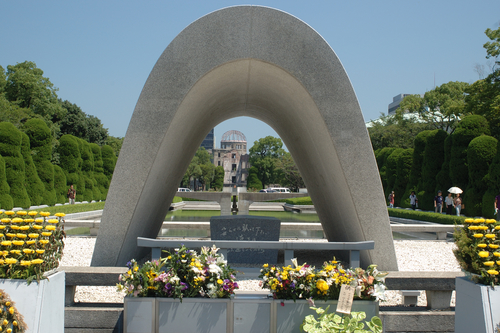"If I am not for myself, who will be for me? If I am not for others, what am I? And if not now, when?" -Rabbi Hillel
As you all know, it has been one week since the devastating earthquake first struck Japan. And the damage is simply horrific.

The death toll is in the thousands (if not the tens of thousands), there are hundreds of aftershocks still ongoing, and over 350,000 people have been displaced from their homes. National geographic has some heartbreaking pictures here.

And although I haven't asked it of you in years, my dear readers, I am asking you now to join with me and help the victims of this horrific natural disaster.
There is no song this weekend, no clever or fun diversion for you, just a moment of silence for those suffering, and a small list of charitable organizations I know of that are doing all they can to help with earthquake and tsunami relief:
- Peace Winds Japan, one of the best relief organizations anywhere in the world (I donated through MercyCorps, where my students have set up a donation site),
- Doctors Without Borders, and
- The Japanese, American, and International Red Crosses.
I've donated $100 to Peace Winds Japan, and I encourage all of you to donate something -- including anyplace you like that isn't listed -- as well. We're all in this together, and when something uncontrollable like this happens, it's up to all of us to help the victims recover. (Thanks to Jeff over at Dean's Corner for starting this off.)
And I have a personal story about the one time I went to Japan (for this cosmology conference) that I'd like to share with you.

Sure, I was there for a conference, but I took an extra week off from work, bought a Japan Rail Pass, and explored as much of the island of Honshu as I could. Armed with a phrasebook, my backpack, and a guidebook, I was unsure of what I would find in a culture completely foreign to me.

And, of course, with a language completely foreign to me! Sure, I'd been to many countries in Europe, but here I was in a land with three alphabets, of which I was able to recognize about 11 Hiragana characters. It was my first time as a functional illiterate, and it was daunting. Still, I made it to Tokyo, Kyoto, Osaka (where my friend Ken was kind enough to show me around; hi, Ken!), the hot springs (in Hakone), as well as Miyajima and Hiroshima. And Hiroshima was by far the most impressive of these cities to me.

Because in my mind, the above photo is what Hiroshima was. I had a grandfather stationed in the South Pacific during WWII, and I was more than a little worried that I'd encounter quite a bit of anti-American sentiment there. But I wanted to go, to see the WWII memorial, and experience the rebuilt city for myself. And although I had read many things that had told me my expectations were not going to align with reality, I was completely unprepared for the magnitude of what I encountered.

An exploding megalopolis! With millions of people, Hiroshima is the epitome of a modern city in Japan. And I was determined to go see the memorial. But, unsurprisingly, with just a guidebook and a feeble grasp of the language, I was... shall we say, having difficulties. After stopping near a street corner and looking puzzled, an older gentleman (he must have been in his 60s) came up to me and gestured his willingness to help.
I decided to go for it, and asked him (in Japanese) if he spoke English, and of course the answer was no. So, in my broken Japanese, I told him what's probably the equivalent of, "I go to war memorial. How I go?" As he started to answer, we both realized I'd have no chance at understanding the answer. What happened next was absolutely amazing.
He made the "one minute" gesture to me with his hand, turned his back to me, and ran -- at a full sprint -- towards the far corner of the block. He turned a hard left, and disappeared. Puzzled but optimistic, I waited. And about 45 seconds later, he returned, still at a full sprint, holding something in his right hand. When he reached me, out of breath, he showed me what he had.

It was a map of Hiroshima! And much larger and more detailed than the rinky-dink one above, too; it was about the size of a large window! He unfolded it in front of me, and then whipped out a green highlighter. He circled where we were, circled where the war memorial was, and drew a path for me to take to get there. And then, like it was nothing, simply gave me the map.

I was dumbstruck. I couldn't imagine anything like this ever happening to a foreigner in the United States -- especially one who didn't speak but a few words of the native language -- anywhere I've ever lived. So I did the one thing I could think of to thank him: I asked him if the building we were outside was his hotel, and he said yes. So I rented a room from him, and was never so happy to say thank you as I was to pay for that room.

(Of course, while I was in Hiroshima, I also got to learn about Sadako Sasaki and the paper cranes, a heartbreaking and beautiful story, and broke down into tears while reading and learning about the aftermath of the atomic bomb, and its effects on the citizens of Hiroshima and of Japan in general, while inside the museum.)
But that story -- the story of the kindness of a stranger to a foreigner -- is one that goes beyond politics, beyond national borders, and made me proud to simply be human. And I can think of no better way to end this than to remember the words of Martin Luther King, Jr.,
We must learn to live together as brothers or perish together as fools.
That's my Japan story. We are all in this together, and now is the time for us to come to the aid of a great nation facing one of its greatest challenges. Thank you, Japan, for being wonderful, and here's wishing everyone affected by the earthquake a safe and speedy recovery. Let's give them the best support the world has to offer!

Just for clarity... the pictures of fallen buildings you show is, I believe, a set of pictures from the Kobe earthquake of 1995. The text suggests that they are from this most recent earthquake, which is not the case.
Chris, yikes! Thank you; replaced it with a much more representative one of the one that happened just last week. Thanks for the catch; hope I don't make a move like that again anytime soon!
Millions in Tokyo remained indoors on Friday, fearing a blast of radioactive material from the complex.
Impressive story. I am so sorry for Japaneses. I do like this nation. They are great people. They are strong and I believe they regain the prosperous time.
I have also so many memories from Japanese. Although, I did not have the chance visiting Japan, their long t.v serials were unforgettable memories of my childhood.
This tragedy was beyond expectations. So many have passed away and so many are displaced in shelters. Vast destruction is heartbreaking.
Today, I noticed the nuclear plant destruction emergency degree is raised to 5 in international scale. I hope we never see another disaster for people of Japan in coming days.
I pray for recovery of the reactor control as soon as possible. Although, quake devastated and killed so many people, I afraid about long term issue for Japan and the glob because of uncontrollable and high nuclear leak and radiation. It's a silent threat.
I am sure people of the world support Japan to stand on its feet and back on the track. Happily, world is mature enough to know the value of cooperation.
I can hear many people in the world believe in your stated message, "We must learn to live together as brothers".
Friends near Tokyo: OK but shaken. Friends from Tohoku University in Sendai: no news yet (but optimistic). The disaster brought back to mind many discussions about inherently hazardous and heavily populated areas such as Mt. Vesuvius. What can be done to warn people? Not much - generally you have to deal with the big mess.
Although I would encourage donating to doctors without borders, that group does not set aside donations for specific operations - so in cases like these I give to the various Red Cross groups. The Red Cross will often dedicate donations to a particular operation and divert the funds elsewhere if there are surplus funds.
Christ Ethan... I come here to smile and further my ignorant knowledge of the universe and here you got a grown man kind of choked up after reading that story! I have nothing but the highest respect for the Japanese and their culture. A culture so foreign to many Americans that at times we tend to laugh at them. There is no doubt that they will come back from this and like Hiroshima, they will be a stronger country because of this.
People suffer everywhere. Recently, I gave $250 for a young woman who needed to raise $5000 just to be put on the candidate list for a heart transplant. (U.S.)
People are kind everywhere. Lost in Paris, I had a similar experience to yours.
It is important to give of ourselves (e.g. the man in your story) and to give financially.
Thank you for your suggestions and links.
My experiences in Japan, including Hiroshima, and of the Japanese people were also very good. They need our help.
The first time I went to Japan, I was trying to get from Tokyo to Kyoto. The plan was to take the bus to the train station. However, I couldn't figure out what bus went where and maps and guidebook weren't helping. I tried to ask a gentleman who was also waiting for a bus, he didn't speak english, and my Japanese was terrible. However, he understood what I needed, took me around the corner to where the bus I wanted would be, RODE WITH ME to the train station, went to the ticket window to make sure I got the right ticket, and then, THEY LET HIM walk with me to the right platform. He indicated that I should wait right there for the train, and after many thanks and bows ran off to get to work. And if you if you know Japan, being late to work is a big deal.
Just amazing, I always remember this when I see someone that needs a little help and try to pass it on.
Donation sent.
Millions in Tokyo remained indoors on Friday, fearing a blast of radioactive material from the complex.
My Japanese story:
Traveling with my son, (who was in middle school at the time), we were headed to the train station. We were on a rural bus and I wasn't sure where it was going so seeing a sign that said the main bus company, we got off the bus we were on. Bad decision. It was an isolated stop, no one was around and no bus was coming that we could find. Then a couple stopped to help us and ended up going way out of their way to personally drive us to the train station.
But I do have one disagreement with your story, Ethan. There are plenty of people in the US who also go out of their way to help foreigners. Those of us who have traveled see that lost foreigner and can relate. :-)
I've lived in Japan for the past six years, and I could recount too many stories for just a blog comment exactly along these lines.
I will say this: you see before you now no better representation of the Japanese national and cultural character than you ever will. Compare and contrast what is happening now near Sendai to what happened in New Orleans after Hurricane Katrina.
Worlds apart.
http://www.flickr.com/photos/thecay/24209330/in/set-553997/
I will say this: you see before you now no better representation of the Japanese national and cultural character than you ever will. Compare and contrast what is happening now near Sendai to what happened in New Orleans after Hurricane Katrina.
Nükleer santrallarla ilgili hükümetin tutumunun da sorulduÄu KılıçdaroÄlu, âNükleer santral konusunda ihale yapılmaması, bizim önümüzdeki en ciddi sorun olarak duruyor. Niçin 20 milyar dolar? Ãin, Almanya gibi pek çok ülke yeniden düÅünüyor. Nükleer santrallar konusunda kamuoyundan gelen tepkileri dikkate alıyorlar. Türkiyeânin de daha nükleer santral yapılmadan Åapkasını önüne koyup düÅünmesi lazımâ diye konuÅtu
Friends near Tokyo: OK but shaken. Friends from Tohoku University in Sendai: no news yet (but optimistic). The disaster brought back to mind many discussions about inherently hazardous and heavily populated areas such as Mt. Vesuvius. What can be done to warn people? Not much - generally you have to deal with the big mess.
Thanks for the recommendation. Peace Winds gets my donation.
This is an amazing story. I stumbled upon this because I was assigned an essay that explains the effects of World War II (I'm only a high schooler: that's why the topic was simple). But this is so heart-warming. I couldn't have imagined the terrible suffering the Japanese have experienced then and now. I sincerely wish I can donate to Peace Winds, but I have no money of my own to spare. I can share my support by sharing your awesome story. :)
This must be the saddest thing for Japanese.
Nice suggestions , I was fascinated by the facts - Does someone know where my company might find a blank a form document to complete ?